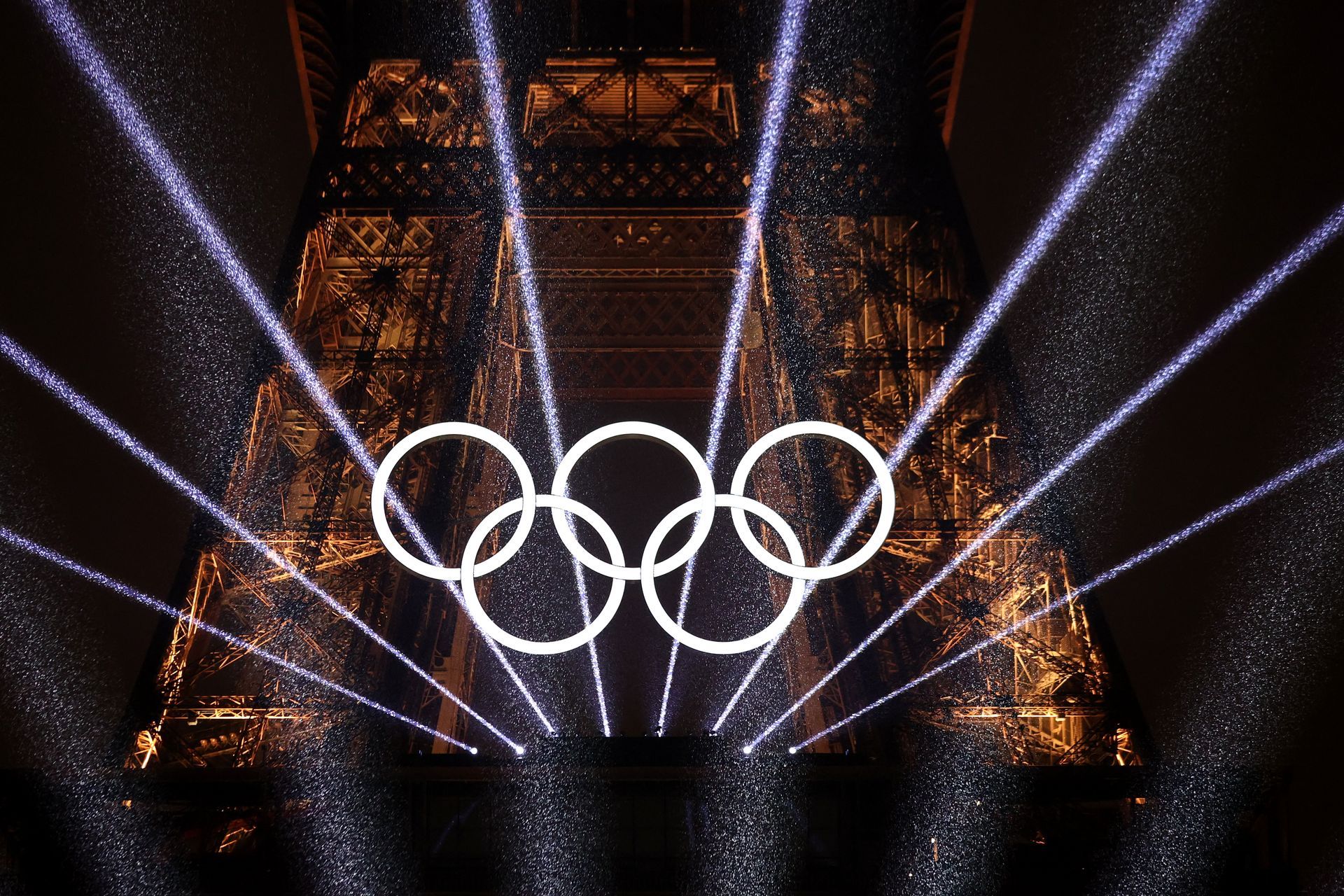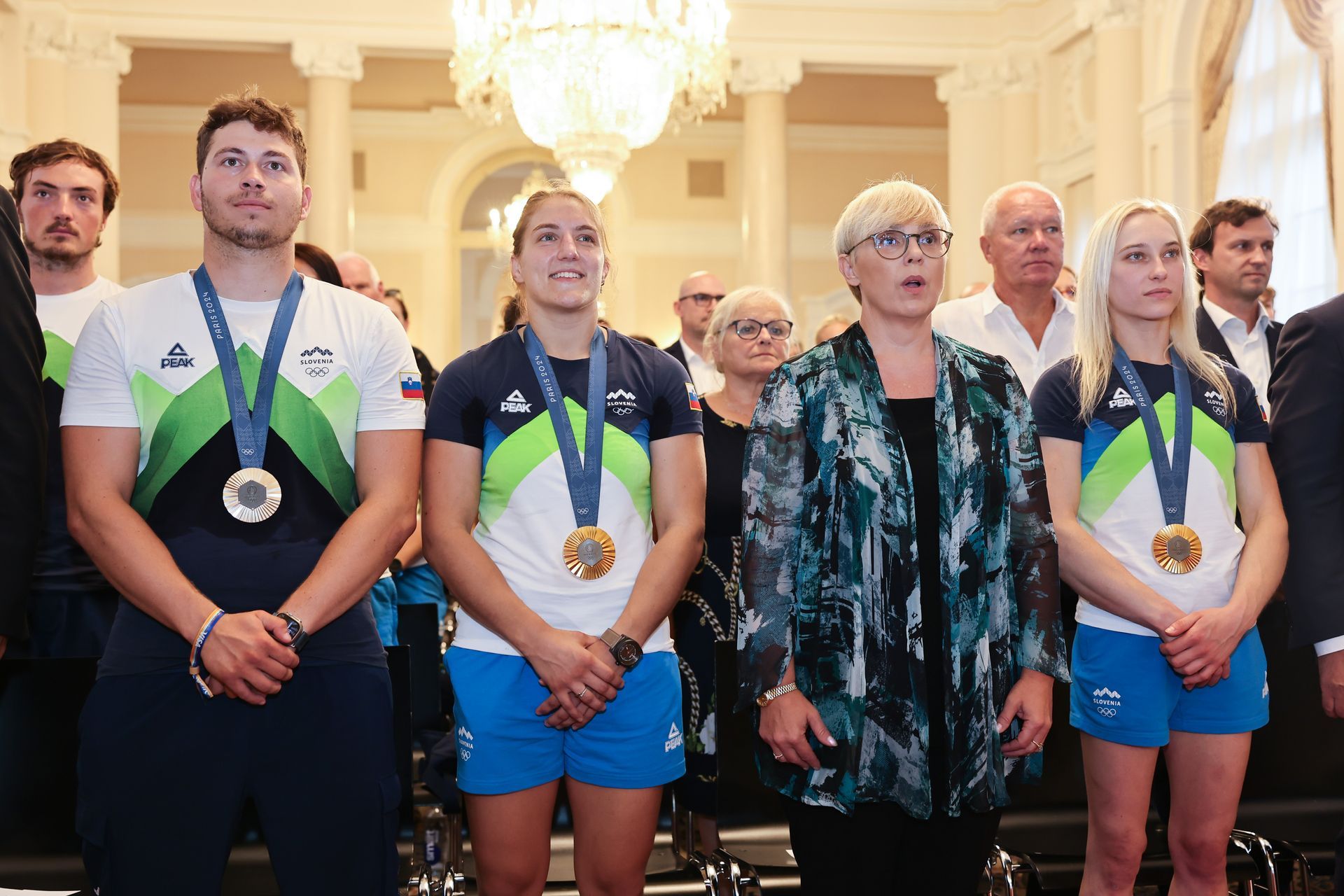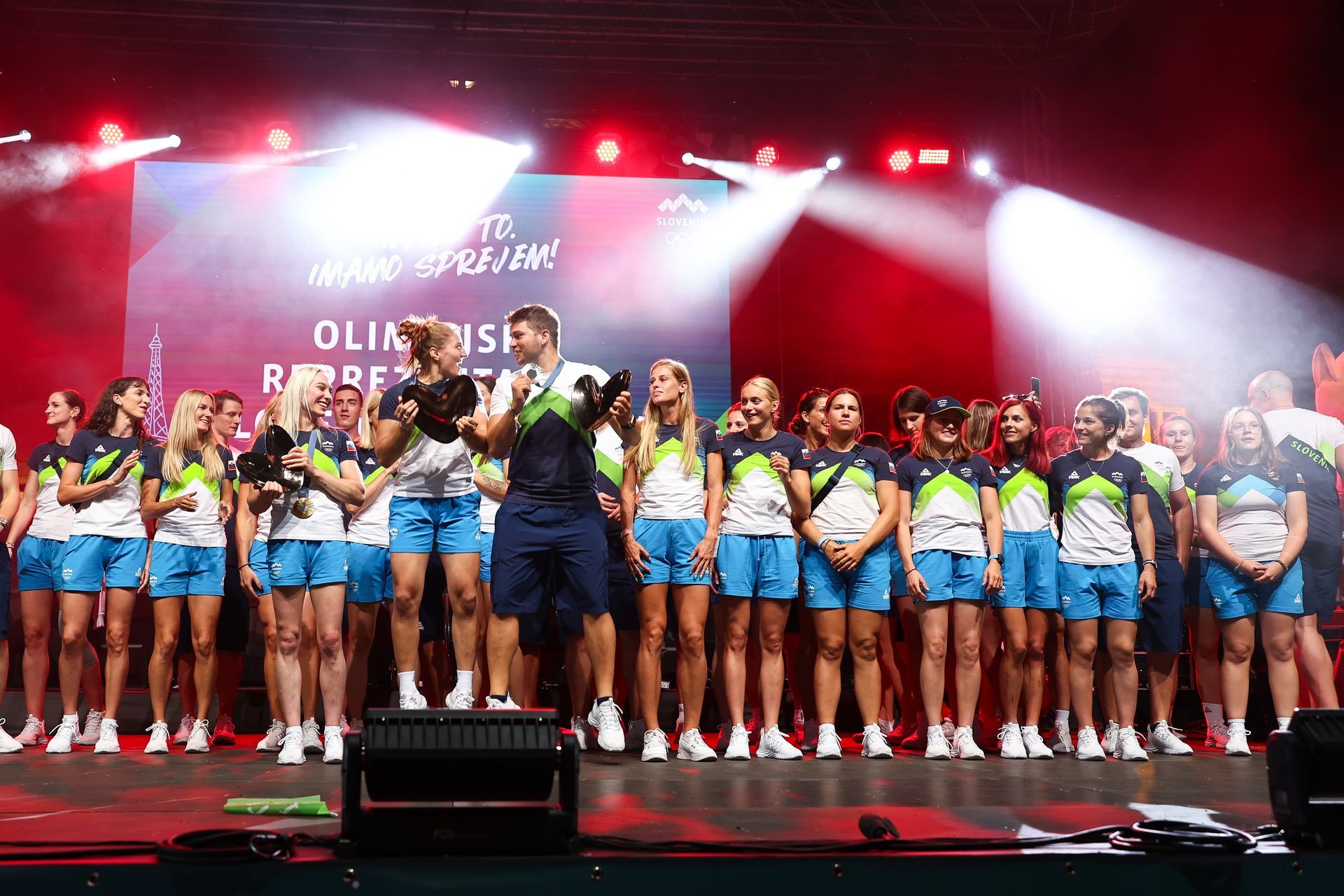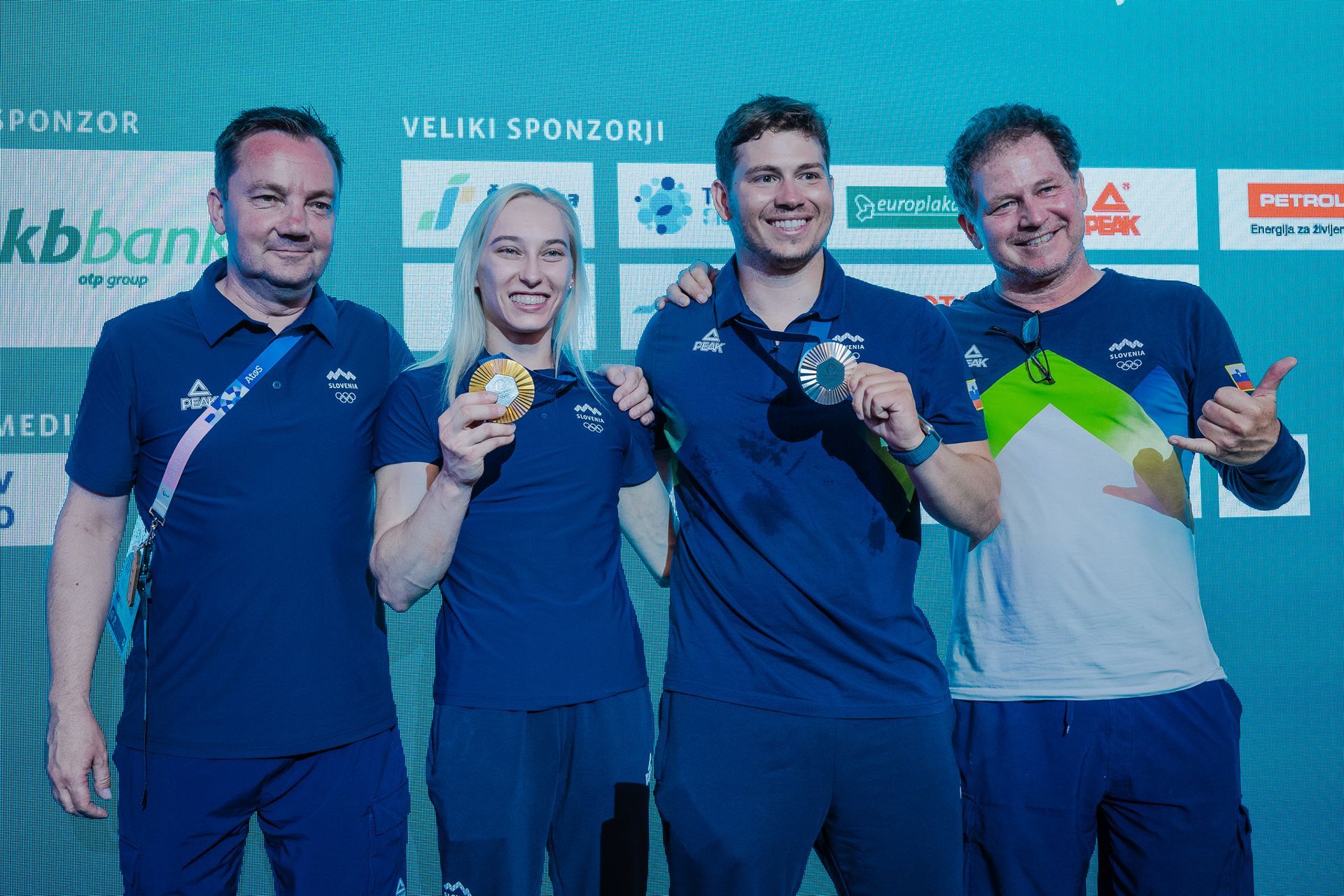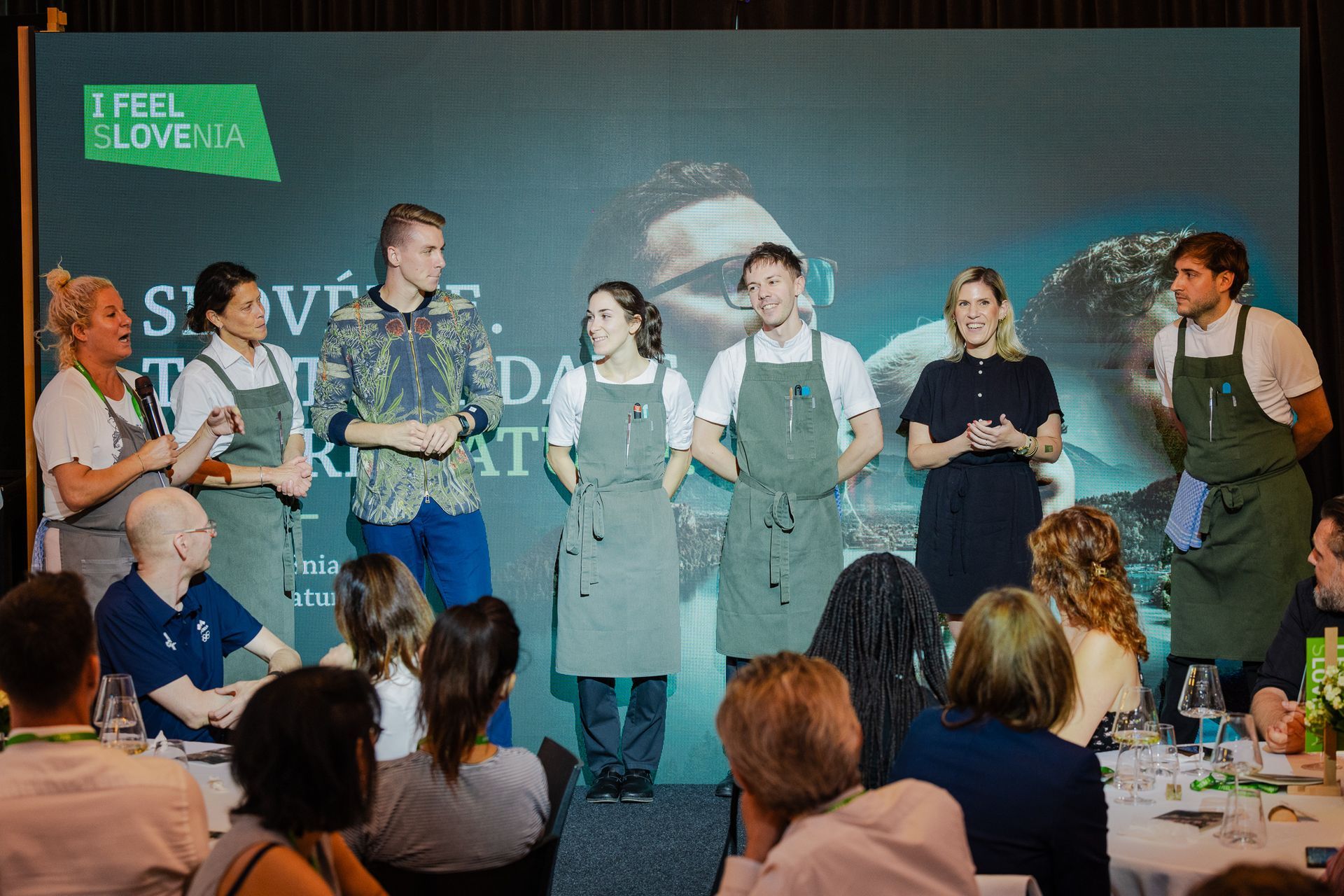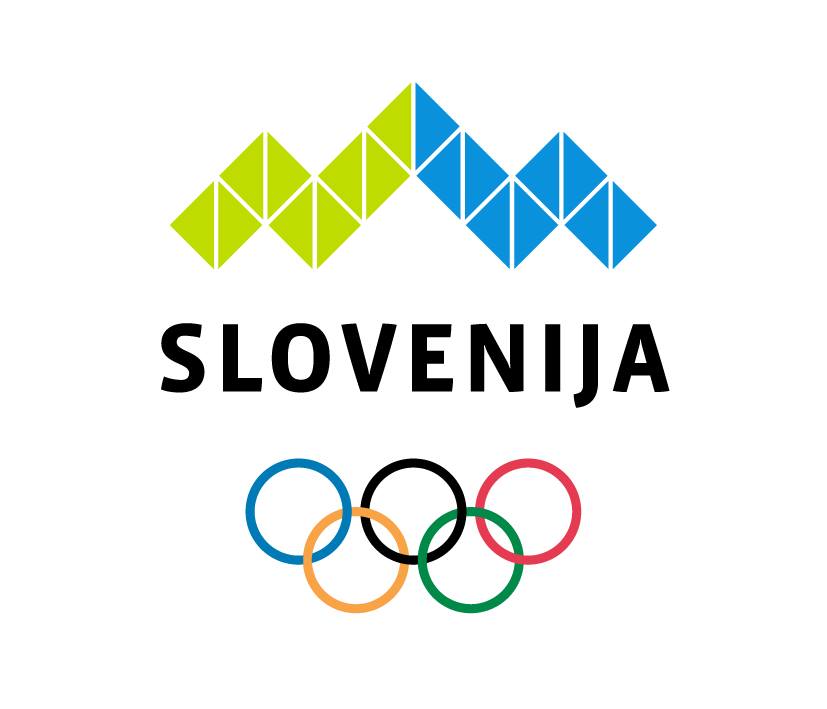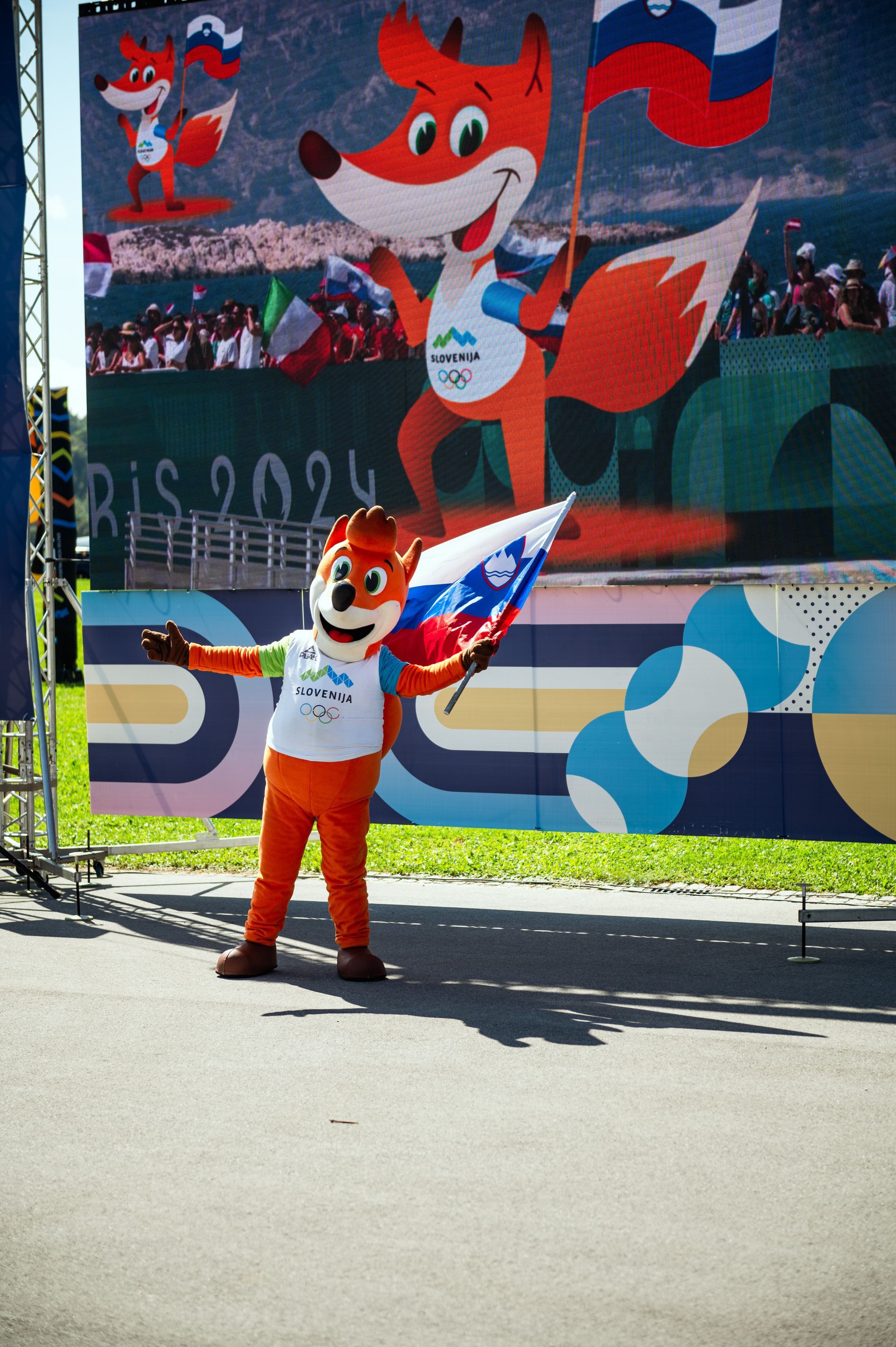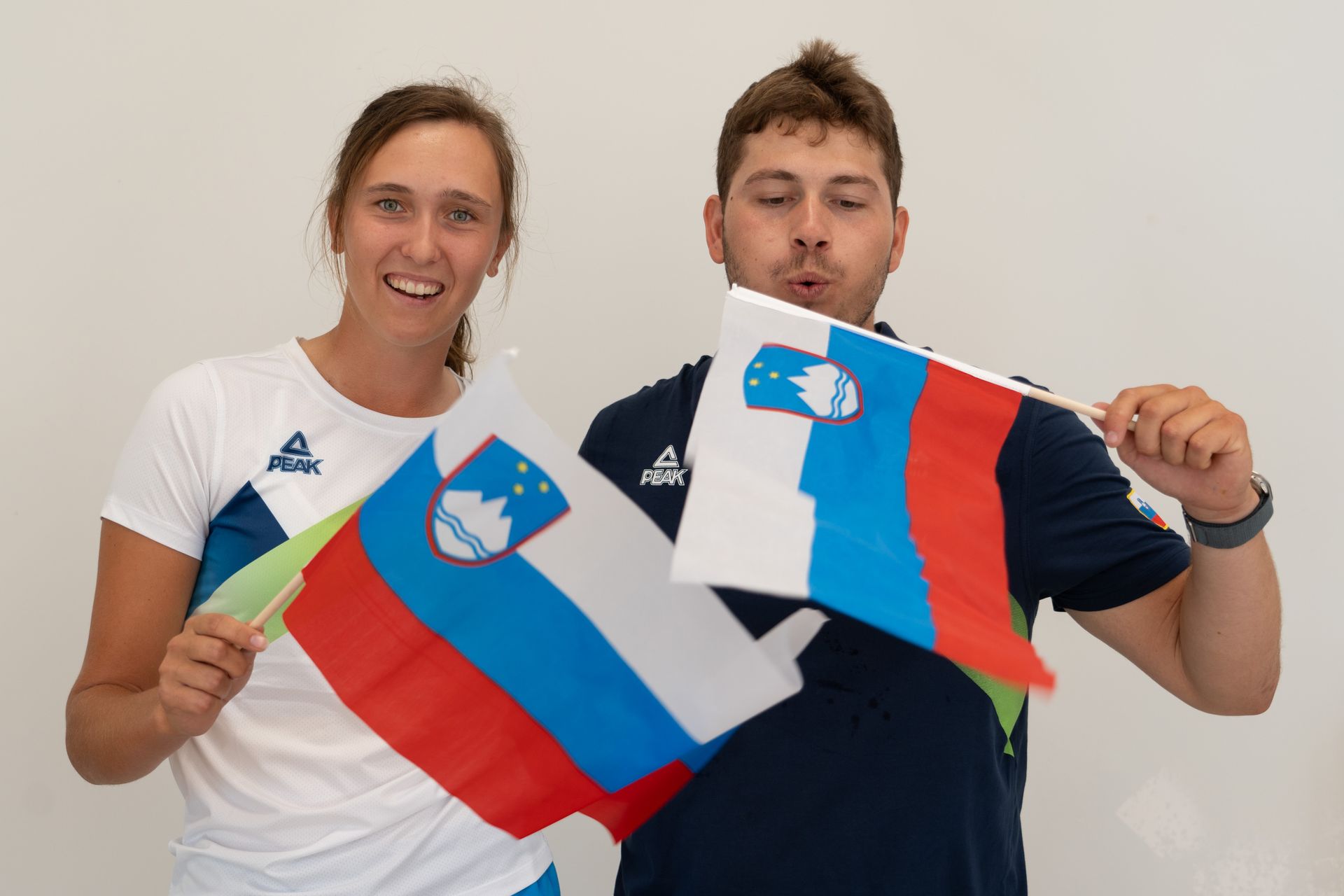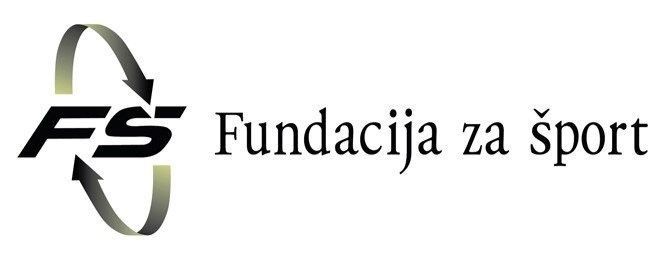Top athletes on the challenges of life after sport
August 5 2024
Today, the last thematic roundtable organised by NOC Slovenia took place at the Slovenian House. The topic was the second career of top athletes, or how athletes find themselves after they stop playing sport. The challenges, pitfalls and fears they faced along the way, their experiences, were discussed by judoka Urška Žolnir Jugovar, skier Tina Maze, ambassador of the Leon Štukelj and Miro Cerar Foundation at the NOC Slovenia and the national brand I feel Slovenia, basketball player Goran Dragić, ambassador of the Leon Štukelj and Miro Cerar Foundation at the NOC Slovenia, and Montenegrin gold medal volleyball player Igor Vušurović, now Secretary General of the Montenegrin Olympic Committee, and kayaker Andraž Vehovar, who was this time in the role of moderator.
In the opening part of the Round Table, we prepared a surprise for the visitors by inviting 94-year-old Olympian Rose Voisk, the oldest living Slovenian Olympian, to the Slovenian House. She was born as Ruža Vojsk in Maribor in 1930 and took part in the 1948 London Olympics as a member of the Yugoslav national gymnastics team. She shared some highlights from those Games with the visitors. She said that the opening ceremony was wonderful. She also shared her recipe for vitality - plenty of exercise. "I am happy and honoured to be here with you," she greeted the participants in Slovenian.
"We athletes in our careers think that sport is the most important thing in life, but it is not. Far from it. Young athletes need to know and be aware that there is life after sport and they need to be prepared for that. During their sporting career, they face injuries, overtraining, even doping," said Andraž Vehovar, among others. He asked the interviewees what their fears were before the end of their careers.
"My biggest fear when I was finishing my sporting career, was whether I would be able to pursue another profession. At the time, though, I knew I could work as a coach in judo, and for four years I did. But later I decided to continue my education. I successfully completed that chapter as well. In the meantime, I started a family and my goal was fulfilled," said former judoka Urška Žolnir Jugovar, adding that at the time she could not imagine what else she could do after her sporting career was over. "Personally, I am a person who needs adrenaline and challenges. Once one has achieved the greatest success in sport, one wants to be among the best again after the end of one's sporting career, to be similarly successful in a new profession," she added.
Igor Vusurovic, a member of the gold medal-winning Montenegrin team at the Sydney 2000, said that at the end of the day, all we want is to be able to do what we love to do in life. "To really feel a special passion, a bond and that day after day the work brings us new challenges that we can successfully overcome."
He pointed out that it is important that athletes maintain a positive attitude. When he started working for the Olympic Committee of Montenegro, there were many challenges. Even after his career, he maintained a positive attitude, and he stressed the importance of networking. "It's important to find your place after your career. When I started working for the Olympic Committee, I knew nothing about marketing, I didn't know what we talked about in meetings, but I faced the challenges and found my way," he said. In Montenegro, he notes that athletes tend to lack creativity, as their schedules and lifestyles are clearly mapped out during their careers. Someone is always making their schedules. It is important that athletes are empowered after their career.
Goran Dragić did not decide to end his career on his own, he was advised to do so by his doctor. And that was the most difficult moment, said the world-class and NBA basketball player. "The doctor said that my knee is not in good condition, that I have to retire. That was a sign that it was really over now. But on the one hand I was also happy because I had missed a big part of my children's childhood up to that point, and now we finally have the opportunity to shape our schedule to our liking and be together a lot. Now I want to give back at least some of what I have learnt and what I know. I want to give back, especially to those who are just starting out. I love kids, I love teaching them and sharing my experience with them," said Goran Dragić.
"The most important thing for me is to find something you love in life, a passion that makes you happy. Of course, I know that I will miss the excitement you get when you walk into the arena and compete in front of 30,000 spectators. But I also know that it's not an option anymore. As athletes, we have done what we have loved in life from day one and we need to find that for the future," he added.
Tina Maze, the best Slovenian skier of all time, the queen of Alpine skiing, who herself decided to end her career, remembers the beginning of a different life as the most difficult. "Suddenly you start living on your own, taking care of yourself. Before, I had five people looking after me, saying, 'Today you do this, tomorrow you do that', my mother cooked my lunch if I was at home and put my clothes away." After a career, an athlete has to redraw his life and decide what to do. "The sport part is the part that we as former athletes have to keep, because otherwise we will never find the same adrenaline and that something in the things we do. The job is part of our life."
Tina also stressed the importance of the mental. It is important to share our feelings, to be able to face them. We are all different, we react differently. That is why everyone is important. I’m probably the one in this room who had the biggest fears, but I have faced them. I had to face my fears. I believe that is the case with everybody, and sports have their own specificities.
"It's important to talk about problems, especially when the ideas are shared by athletes who are better than you and put those ideas forward. Young people need to see how we older athletes have done, what is the way forward. We change after our careers. Overcoming fear is an important part of sport," shared Tina Maze.
Tina Maze also pointed out that during her career she was educated and completed her studies, she studied longer than others (10 years), but she completed her studies. She pointed out that everything is possible. "My goal in life was architecture, but because of my busy career, I decided to go to a teaching faculty," she admitted.
She praised the Slovenian education system, in particular the Ravne na Koroškem Gymnasium, which, in addition to her sporting career, also enabled her to study and highlighted her extremely positive experiences.
Goran Dragić pointed to the effectiveness of the NBA model as an example of good practice. "There, from day one, you are taught for life after your career. We all know that you can quit tomorrow and that there is more than just sport. Of course you want to be the best on the floor, but you also have to make time for the future. These things are important and it is up to former athletes to show the way to the new generations," said Dragić.
More photos at: GALLERY.
